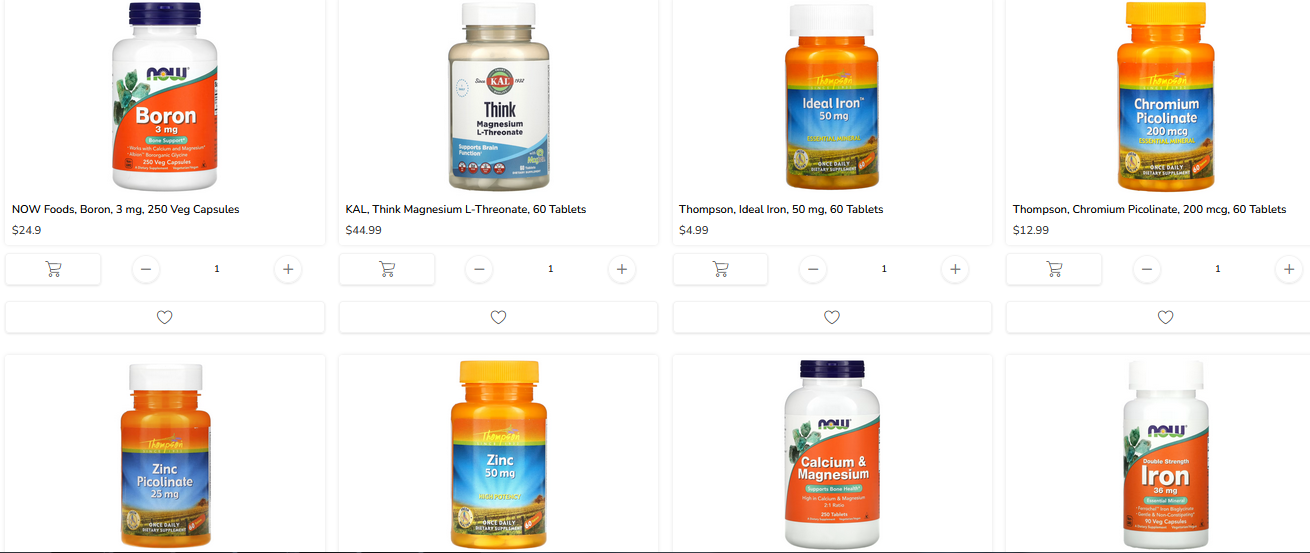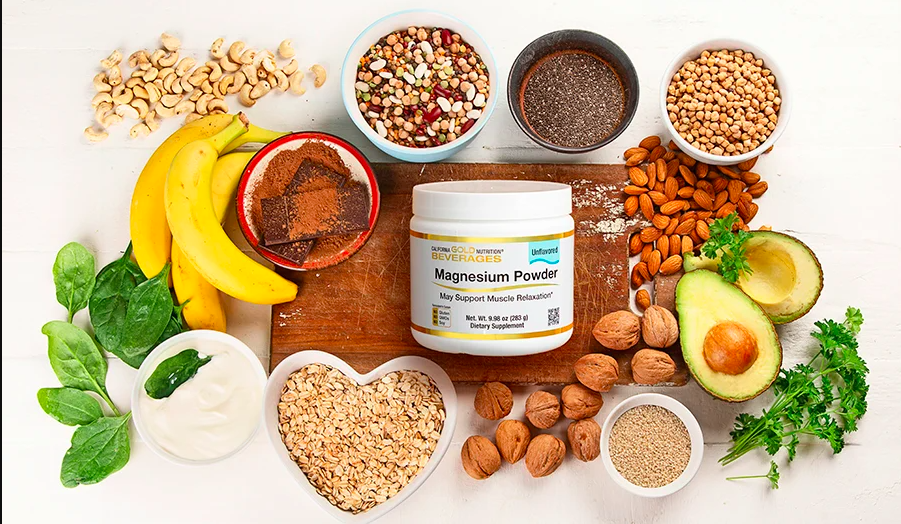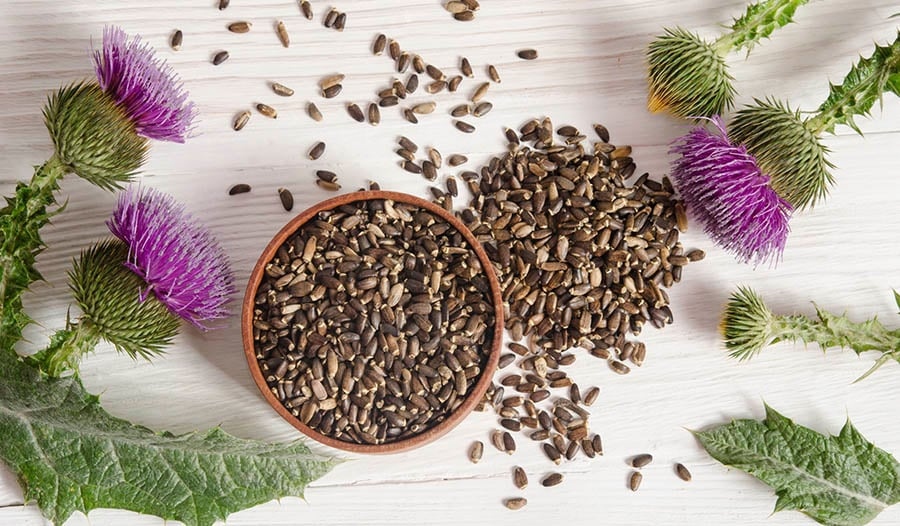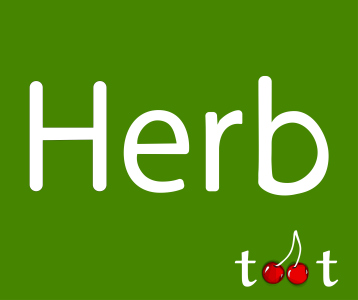
Things To Check Before Choosing Your Beauty Products
Are
you new to reading the ingredients list before buying lipstick or other
cosmetics? If you declined, others understand. Too many of us must contemplate
our health risks before purchasing cosmetics from Beauty
Products Store in Jordan.
Becoming a conscientious user of beauty products is vital, though.
Checklist Before Choosing Your Beauty Products
Before
purchasing cosmetics, you must verify the following details:
Ingredient List
Read
the ingredient list to find out what goes into your skincare product. Monitor
for irritants and allergies, including sulphates, parabens, and perfumes. If
you can, choose items made with natural components and less chemicals.
Expiration Date
Cosmetics
have an expiration date, much like food. You risk skin problems or infections
if you use products that have expired. Before you throw out anything, be sure
you check the expiration date.
Skin Type Compatibility
When
choosing cosmetics, keep your skin type in mind. The requirements for oily,
dry, sensitive, and mixed skin types differ. Choose items for your skin type to
maximize your skincare routine.
Hypoallergenic Products
If
you have sensitive skin, use hypoallergenic cosmetics. These are designed for
sensitive skin and are less likely to cause problems.
What are Health Pills
Health
pills are dietary supplements for general and medical health. It is possible to
use vitamins, minerals, and plant products. For healthy living, these
supplements compensate for missing nutrients and boost your immune system,
energy, and heart health.
Conclusion
With
these things in mind, you can choose your cosmetics confidently. Taking the
time to carefully select the items before you Buy
Health Pills from Herbtoot that will
promote your health and well-being will allow you to feel confident in your
appearance and protect your skin from harmful elements.
For more information, you can visit our website https://www.herbtoot.com/

Vitamin A, also known as retinol, has several important functions.
These include:
- helping your body's natural defence against illness and infection (the immune system) work properly
- helping vision in dim light
- keeping skin and the lining of some parts of the body, such as the nose, healthy
Good sources of vitamin A
Good sources of vitamin A (retinol) include:
- cheese
- eggs
- oily fish
- fortified low-fat spreads
- milk and yoghurt
- liver and liver products such as liver pâté – this is a particularly rich source of vitamin A, so you may be at risk of having too much vitamin A if you have it more than once a week (if you're pregnant you should avoid eating liver or liver products)
You can also get vitamin A by including good sources of beta-carotene in your diet, as the body can convert this into retinol.
The main food sources of beta-carotene are:
- yellow, red and green (leafy) vegetables, such as spinach, carrots, sweet potatoes and red peppers
- yellow fruit, such as mango, papaya and apricots
How much vitamin A do I need?
The total vitamin A content of a food is usually expressed as micrograms (µg) of retinol equivalents (RE).
The amount of vitamin A adults aged 19 to 64 need is:
- 700 µg a day for men
- 600 µg a day for women
You should be able to get all the vitamin A you need from your diet.
Any vitamin A your body does not need immediately is stored for future use. This means you do not need it every day.
What happens if I take too much vitamin A?
Some research suggests that having more than an average of 1.5 mg (1,500 µg) a day of vitamin A over many years may affect your bones, making them more likely to fracture when you're older.
This is particularly important for older people, especially women, who are already at increased risk of osteoporosis, a condition that weakens bones.
If you eat liver or liver pâté more than once a week, you may be getting too much vitamin A.
Many multivitamins contain vitamin A. Other supplements, such as fish liver oil, are also high in vitamin A.
If you take supplements containing vitamin A, make sure your daily intake from food and supplements does not exceed 1.5 mg (1,500 µg).
If you eat liver every week, do not take supplements that contain vitamin A.
If you're pregnant
Having large amounts of vitamin A can harm your unborn baby. So if you're pregnant or thinking about having a baby, do not eat liver or liver products, such as pâté, because these are very high in vitamin A.
Also avoid taking supplements that contain vitamin A. Speak to your GP or midwife if you would like more information.
What does the Department of Health and Social Care advise?
You should be able to get all the vitamin A you need by eating a varied and balanced diet.
If you take a supplement that contains vitamin A, do not take too much because this could be harmful.
Liver is a very rich source of vitamin A. Do not eat liver or liver products, such as pâté, more than once a week.
You should also be aware of how much vitamin A there is in any supplements you take.
If you're pregnant or thinking of having a baby:
- avoid taking supplements containing vitamin A, including fish liver oil, unless advised to by your GP
- avoid liver or liver products, such as pâté, as these are very high in vitamin A
Women who have been through the menopause and older men, who are more at risk of osteoporosis, should avoid having more than 1.5mg of vitamin A a day from food and supplements.
This means:
- not eating liver or liver products, such as pâté, more than once a week, or having smaller portions of these
- taking no more than 1.5mg of vitamin A a day in supplements (including fish liver oil) if you do not eat liver or liver products
- not taking any supplements containing vitamin A (including fish liver oil) if you eat liver once a week
Having an average of 1.5mg a day or less of vitamin A from diet and supplements combined is unlikely to cause any harm.
Milk Thistle Extract: Benefits, Detoxification, Liver Health, and More

What are the benefits of milk thistle?
Many plants have beneficial effects on liver function. However, the most impressive research has been on milk thistle (Silybum marianum) extracts. Many of the health benefits of milk thistle extracts are due to the concentration of silymarin, a flavonoid compound that significantly protects the liver from damage and enhances detoxification processes. Silymarin components are among the most powerful liver-protective substances known.
Milk thistle extract can protect the liver from damage and regenerate new, healthy liver cells to replace old, damaged cells. And milk thistle doesn’t just help the liver. Research has also found that milk thistle extract can help repair and regenerate kidney cells, increasing kidney cell proliferation by 25%-30%. The kidneys are another essential aspect of detoxification.
Milk thistle extracts (usually standardized to contain 70% silymarin) have shown a variety of beneficial effects in human clinical trials, many of which are linked to improved liver function. When liver function improves, it allows the organ to do its job. As a result, improvements are seen in blood sugar control, cholesterol and lipid metabolism, and overall health.
How Milk Thistle Extract Helps Detoxify
One of the primary ways that milk thistle extract enhances detoxification processes is by preventing the depletion of glutathione. The level of this valuable detoxifying aid, antioxidant, and cell protector within the liver is closely related to its ability to protect itself and detoxify harmful compounds. Basically, the higher the glutathione content, the better the liver’s ability to detoxify harmful chemicals.
Typically, when exposed to chemicals that can damage the liver, including alcohol, the concentration of glutathione in the liver is significantly reduced. This decrease in glutathione makes liver cells vulnerable to damage.
Milk Thistle Extract not only prevents the depletion of glutathione caused by alcohol and other toxic chemicals, but it has also been shown to increase liver glutathione levels by up to 35% in people with normal liver function. Since the liver’s ability to detoxify is linked to the level of glutathione in the liver, the results of this study suggest that milk thistle extract can increase detoxification reactions by up to 35%, even in healthy individuals.
What does the research say about milk thistle extract?
In several clinical studies, silymarin has been shown to have positive effects in supporting liver health regardless of the stress or challenge that the organ is subjected to. The benefits are typically confirmed by clinical and laboratory data. For example, one early study highlighted the benefit of silymarin in individuals exposed to toxic chemicals. In this study, abnormal liver function tests (elevated levels of liver enzymes in the blood [AST and ALT activity]) and/or abnormal platelet or white blood cell counts were observed in 49 of 200 workers who had been exposed to toxic toluene and/or xylene fumes for 5 to 20 years. Thirty affected workers were treated with silymarin, and the remaining 19 workers were left untreated. Milk thistle extract has been shown to improve liver function parameters, platelet counts, and white blood cells.
Milk thistle extract is also beneficial in fatty liver associated with obesity, diabetes, and metabolic syndrome (abdominal obesity, high blood lipids, insulin resistance, etc.). In studies in people with these disorders, milk thistle extract has led to significant improvements in liver function and, as a result, blood sugar and cholesterol metabolism. Milk thistle extract has also improved some antioxidant markers (SOD, GPX, and TAC) and reduced an inflammatory marker (C-reactive protein). Athletes have also been shown to respond to milk thistle extract’s ability to boost antioxidant markers in the blood.
Boosting the Power of Milk Thistle Extract
The best form of milk thistle uses Phytosome® technology to bind silybin, the main active component of silymarin, to phosphatidylcholine produced from sunflower oil.
Phosphatidylcholine, the main component of lecithin, is not just an emulsifier or carrier for silybin. It has also been shown to promote liver health by helping to repair cell membranes. Thus, these two components of Siliphos® work synergistically to protect and repair liver cells. Scientific research suggests that Siliphos® is more effective at achieving this goal than regular milk thistle extracts because it is better absorbed and has the added benefit of phosphatidylcholine.
The absorption advantage of Siliphos® has been demonstrated in several studies in humans and animals when compared to an equal amount of silybin in regular milk thistle extracts. In one study, the excretion of silybin in the bile of patients who had their gallbladders removed due to gallstones was evaluated. A special drainage tube, a T-tube, was used to obtain the necessary amount of silybin.
Natural Ways to Increase Testosterone: Supplements, Diet, Sleep

Healthy testosterone levels are a critical component of optimal health for men. Testosterone plays a significant role in various aspects of health, from promoting increased muscle mass and bone density to improving mood and energy levels. Testosterone is produced primarily in the testes and naturally peaks during adolescence and early adulthood, gradually declining with age.
Why Is Testosterone Important?
Testosterone is integral to a wide range of bodily functions. Physically, it contributes to muscle mass, strength, and fat distribution. It also supports healthy bone density, which is vital for overall physical health and preventing conditions like osteoporosis.
Testosterone affects mental and emotional health, as well. It influences cognitive functions and mood. Adequate testosterone levels are associated with a positive mood, increased motivation, and a sense of well-being. Conversely, low levels of testosterone can lead to depression, irritability, and cognitive decline.
Libido and sexual performance are also directly linked to testosterone, with low levels often leading to reduced sexual desire and erectile dysfunction. Thus, maintaining balanced testosterone levels is essential for both physical and mental health.
Low Testosterone Symptoms
In recent years, there has been a notable drop in testosterone levels across male populations worldwide. Research indicates that men today have significantly lower testosterone levels compared to previous generations, even when accounting for age. This decline has raised concerns among healthcare professionals and researchers, prompting investigations into potential causes and treatment options.
Low testosterone can impact many areas of a man's life. Symptoms can vary widely but often include fatigue, reduced libido, erectile dysfunction, muscle loss, and mood changes such as depression or irritability.
Understanding these symptoms and their potential impact is the first step toward addressing and managing low testosterone effectively. While aging is a common factor contributing to lower testosterone levels, various other causes exist, including certain medical conditions, lifestyle factors, and genetic predispositions.
Lifestyle Factors
Conventional medication options for treating low testosterone are not always accessible or appropriate for every man. Fortunately, there are a variety of natural options for supporting testosterone levels. These include lifestyle adjustments such as regular resistance exercise, a healthy diet, stress management, and adequate sleep, as well as targeted supplements designed to boost testosterone levels naturally.
Research on natural options for improving testosterone focuses on two groups of men—those with low testosterone and those with healthy testosterone levels. Research findings differ between these two groups, with some treatments showing effects in one group but not the other. It is important to check your individual testosterone levels with a healthcare provider before starting any new herbs or supplements.
Sleep
Adequate sleep is important for maintaining healthy testosterone levels in men. Research shows that insufficient or poor-quality sleep can lead to decreased testosterone production.
During sleep, the body goes through essential processes, including testosterone release. In fact, most of the testosterone in the body is released during sleep. Chronic sleep deprivation or disruptions in sleep patterns can impair this process, resulting in lower testosterone levels.
Prioritizing good sleep hygiene by maintaining a consistent sleep schedule, creating a comfortable sleep environment, and practicing relaxation techniques can help support optimal testosterone production.
Diet
What men eat can impact their testosterone levels. A diet high in processed foods may lead to decreased testicular function, including lower testosterone. A recent study found that men who ate more bread and pastries, desserts, dairy products, and meals outside the home were more likely to have decreased testicular function. Conversely, men who ate more homemade foods and dark green vegetables were more likely to have normal testicular function.
Other research has found that men with a standard Western dietary pattern, including high amounts of processed foods and snacks, had decreased testicular function. In these studies, men who ate more fish, chicken, vegetables, and fruits had better testicular function.
These studies are observational, so they cannot establish a definitive causal link between dietary intake and low testosterone. However, they offer evidence that eating a whole foods diet with plenty of vegetables and lean proteins is associated with better testicular function and testosterone levels.
Vitamins, Minerals, and Essential Fatty Acids
Various nutrients, including vitamins and minerals, have been studied for their effects on testosterone. For some nutrients, benefits are only seen in men with deficiencies, so it is important to have your nutrient levels assessed before starting any new supplements.
Vitamin D
Vitamin D is an important nutrient for various processes in the body, including proper hormone function. Research suggests that adequate levels of vitamin D are associated with higher testosterone levels, while deficiency may contribute to lower testosterone production. Sunlight exposure is a natural source of vitamin D. Still, vitamin D supplements are often recommended—especially for individuals with limited sun exposure or those living in regions with less sunlight.
Research suggests supplementing with vitamin D may increase testosterone levels. One study showed that men who used vitamin D supplements for one year saw improvements in total, free, and bioactive testosterone compared to men supplementing with a placebo.
Boron
Boron is an essential trace mineral that plays various roles in the body. It is involved in the metabolism of minerals, works with vitamin D to support bone health, and influences hormonal balance, particularly by boosting testosterone levels and reducing estrogen levels in men. Research studies have noted improvements in free testosterone in men who supplemented with boron on a daily or weekly basis. The studies were small, but the results are promising.
Fish Oil
Fish oil, rich in omega-3 fatty acids like EPA and DHA, has been shown to positively impact testosterone levels. Omega-3 fatty acids help regulate hormones, including testosterone and may improve overall testicular function. One recent study showed that men supplementing with a DHA-rich fish oil saw improvements in testosterone over the 12 weeks of the study. Fish oil also supports cardiovascular function, enhances mental health, and reduces inflammation.
Magnesium
Magnesium is an essential mineral that plays a vital role in numerous bodily functions, including muscle and nerve function, blood glucose control, and bone health. It also contributes to energy production and has been shown to positively influence testosterone levels. One study examined the effects of magnesium supplementation on the testosterone levels of both athletes and sedentary men. It was found that both groups benefited from supplementation.
Magnesium is available in various forms, each having different effects on the body. Too much magnesium can cause loose stools and digestive discomfort, so starting with a low dose is usually recommended.
Zinc
Zinc is a crucial trace mineral involved in numerous bodily functions, including immune system support, DNA synthesis, and cell division. It plays a key role in maintaining healthy skin, vision, and neurological function. Zinc is particularly important for reproductive health, as it contributes to testosterone production and regulation. Studies have shown that adequate zinc levels can help increase testosterone levels, particularly in men with zinc deficiency.
Herbs and Herbal Extracts
Herbal medicines, including both whole herbs and herbal extracts, have been studied as potential testosterone boosters.
Ashwagandha
Ashwagandha (Withania somnifera) is a popular adaptogenic herb traditionally used in Ayurvedic medicine. Known for its ability to help the body manage stress, ashwagandha has also been shown to improve energy levels, enhance athletic performance, and boost endurance.
Ashwagandha is one of the most widely used botanical testosterone boosters. Recent studies have shown increases in testosterone in men who use ashwagandha daily. Along with its beneficial effects on stress and athletic performance, ashwagandha is a powerhouse for men who want to improve their overall vitality.
Fenugreek
Fenugreek (Trigonella foenum-graecum) is a versatile medicinal herb traditionally used in various cultures and modern herbal medicine. Fenugreek is widely used for its beneficial effects on blood sugar and cholesterol regulation, as well as hormonal health in men and women. This herb both enhances lactation in breastfeeding women and boosts testosterone levels in men.
A recent meta-analysis looking at four clinical trials involving fenugreek showed improvements in total testosterone among men who used the herb compared to those using a placebo. Along with its effects on metabolic health, this herb is a powerhouse for hormonal health.
Tongkat Ali
Tongkat Ali (Eurycoma longifolia) is a medicinal plant native to Southeast Asia. Commonly referred to as "Malaysian ginseng," this herb has been used in traditional medicine for its aphrodisiac and adaptogenic effects.
A recent systematic review and meta-analysis looked at several trials involving this herb and found that tongkat ali use was associated with improved testosterone levels in both healthy men and men with low testosterone. The studies are small, but the results are exciting. Read more about Tongkat Ali here.
Betaine
Betaine, or trimethylglycine (TMG), is a naturally occurring compound found in various plants and animals, including beets. Betaine has been shown to improve cardiovascular function and liver health, along with promoting healthy testosterone levels in athletes. One recent study found that athletes who supplemented with betaine experienced improved athletic performance and increased testosterone concentration.
Tribulus
Tribulus (Tribulus terrestris) is widely promoted as a natural option to boost libido, improve sexual performance, and support hormonal health. Research on Tribulus as a testosterone booster is mixed. While this herb may not improve testosterone directly, some studies suggest it may be effective at improving symptoms related to low testosterone, like low libido and erectile dysfunction.
Pomegranate and Cacao
While many supplements focus on botanical medicines with a history of use as testosterone boosters, some studies are seeking new plants and novel blends. A recent study looking at a proprietary blend containing extracts of pomegranate (Punica granatum) fruit rind and cacao (Theobroma cacao) seeds found that participants using the blend saw improvements in total and free testosterone over the eight weeks of the study.
Safety and Potential Risks
Many of the supplements and herbs mentioned here are widely used and generally considered safe for most men. Still, it’s important to remember that supplements may interact with certain medications or other supplements. Although rare, some individuals may be allergic to certain herbs or supplements, leading to allergic reactions. Always talk to a healthcare provider before using any new herbs or supplements.
Takeaway
Testosterone levels in men worldwide have declined over the past few decades. Studies indicate a significant decrease in testosterone levels in today's men compared to earlier generations, even after considering age-related factors. This decline has sparked concern within healthcare and research circles, prompting investigations into potential underlying causes and possible treatment options. Many natural options for improving testosterone levels exist, but more research is needed to establish which works best.
